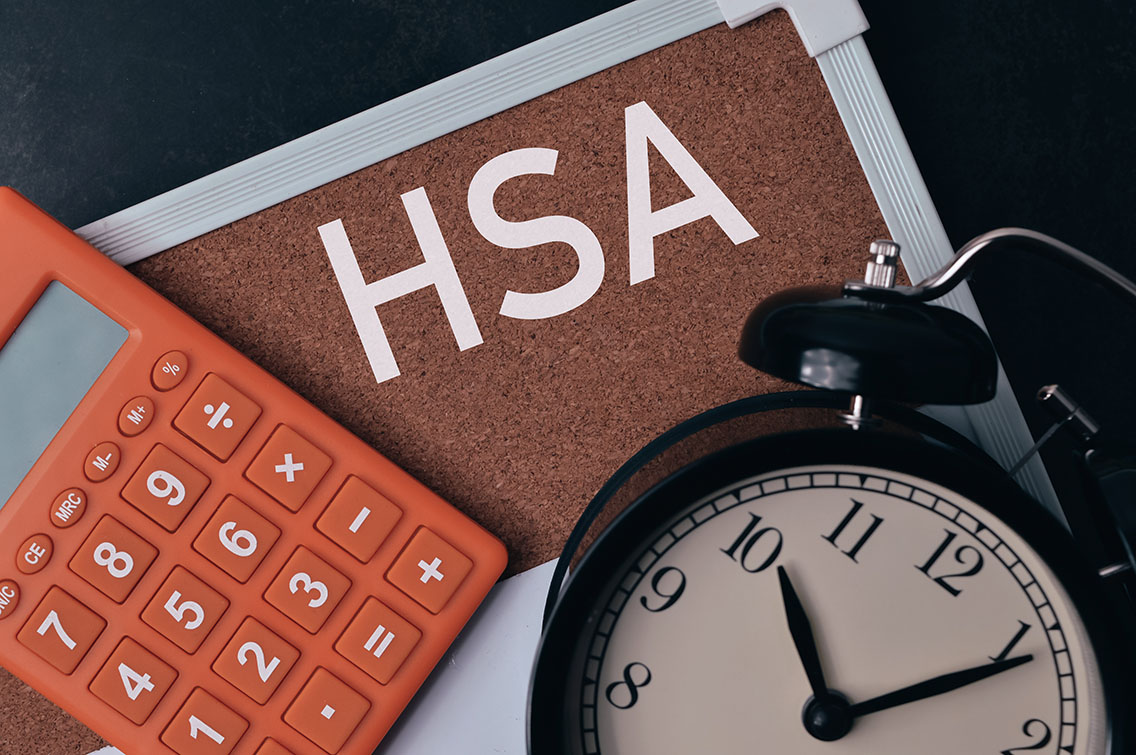In response to the ongoing coronavirus pandemic, the federal income tax filing deadline has been postponed to May 17, 2021 as outlined in Notice IR-2021-59. Discover if the postponement impacts your 2020 HSA contributions and what to do next.
The federal income tax return filing deadline has been postponed from April 15, 2021, to May 17, 2021. The latest details can be found online at the IRS Filing and Payment Deadlines but we will outline here how this impacts your Health Savings Account (HSA).
It is important to note that there is no expected impact on 2021 HSA contributions or your 2021 federal tax deadline. This only applies to 2020 HSA contributions (timing not limits) as they are related to the federal tax deadline.
How the Federal Tax Filing Postponement Impacts Your HSA
The short answer is, it depends on whether you’ve maxed out your 2020 HSA contribution limit and whether you’ve already filed your federal income tax return.
This latest IRS change does not affect your HSA eligibility. In fact, it’s an additional opportunity to contribute to your triple tax-advantaged HSA whether you’ve already filed your federal income tax return, or not. Scroll down to learn more about how your state income tax filing deadline may impact your HSA contribution.
If you haven’t already maxed out your 2020 HSA contribution, now is a great time to do so. You have from now until the new May 17, 2021 deadline to contribute up to $3,550 as an individual and $7,100 for a family. And if you’re 55 or older you can contribute an extra $1,000 in catch-up contributions.
Does this relief provide me more time to contribute money to my HSA for 2020?
Yes. Contributions may be made to your HSA, for a particular tax year, at any time during the year or by the due date for filing your return for that tax year. Because the due date for filing Federal income tax returns is now May 17, 2021, under this relief, you may make contributions to your HSA for 2020 at any time up to May 17, 2021. For more details on HSA contributions, see Publication 969, Health Savings Accounts and Other Tax-Favored Health Plans.
Federal Deadline vs State Deadline
Thanks to prior year contributions associated with HSAs, you can make a contribution up to the tax filing deadline of the next year. A prior year contribution is one that is applied to the previous year’s limit. At the Federal level, this date has moved from April 15, 2021, to May 17, 2021.
However, federal tax rules and state tax rules are not the same. Each has to be followed. If you want to have a new or additional 2020 HSA contribution treated the same by both, you’d have to follow both rules at the same time.
Emergency Relief for Texas, Oklahoma & Louisiana
Due to the winter storm that significantly impacted the states of Texas, Oklahoma, and Louisiana, the IRS issued TX-2021-02, OK-2021-01 and LA-2021-02. This relief allows Texas, Oklahoma and Louisiana citizens to contribute to their HSAs until June 15, 2021. All individuals who reside in Texas, Oklahoma or Louisiana are eligible.
Before you add a new or additional 2020 HSA contribution, you need to confirm your state filing deadline to see which comes first.
If your state deadline has not changed from April 15, 2021, this means that April 15 will be the LAST day that you can contribute to the previous year’s HSA to meet both state and federal deadlines. As states are working to catch up with this new federal legislation, the Tax Foundation is working to compile a list of states that are revising their tax filing date based on the response to COVID-19.
Does This Change the 2020 HSA Contribution Limits?
This has no impact on 2020 HSA contributions limits.
2020 contribution limits remain $3,550 for an individual and $7,100 for a family. If you are 55 or older your catch-up contributions are limited to an extra $1,000 a year. Read the full 2020 HSA contribution limits details.
Contribute More to 2020 Health Savings Account
If you want to maximize the potential of your 2020 HSA contributions, you can take these steps:
Before adding a new or additional 2020 HSA contribution, confirm your state filing deadline to see which comes first.
- Contribute new or additional funds to your HSA prior to your state income tax filing deadline, or May 17, 2021, the federal income tax filing deadline – whichever comes first.
- If you’ve already filed your state and federal income taxes, file an amended state and federal tax return.
- If you contribute new or additional funds to your HSA and have not yet filed for state or federal taxes, file your taxes as usual.
Already Maxed Out 2020 HSA Contributions
If you’ve already maxed-out your 2020 HSA contributions, here are a few things you can do.
- File your state income taxes by their filing deadline, or May 17, 2021, the federal income tax filing deadline – whichever comes first.
- If you’ve already maxed-out your 2020 HSA contributions and filed your state and federal income tax returns, congratulations! There are no further steps that you need to take for the 2020 tax year.
- Whether you’ve filed your income tax returns, or not, it’s a great time to make new or additional HSA contributions for the 2021 tax year.
Complete Your Tax Returns
With events rapidly changing, we want to clarify any confusion regarding tax deadlines. If you have any questions regarding your tax returns and deadlines, consult a tax professional. For any questions regarding your Lively HSA, please reach out to our customer support team at [email protected].
Lively, the #1 user-rated HSA provider, currently administers health savings accounts for Alliance Health Plan participants. Their team is dedicated and passionate about simplifying and improving how people save and spend their healthcare funds. They put customers’ needs first, providing exceptional customer support and bringing HSAs into the modern era. Lively’s goal is to make it easy to save on the costs of healthcare today and plan for the costs of tomorrow.






